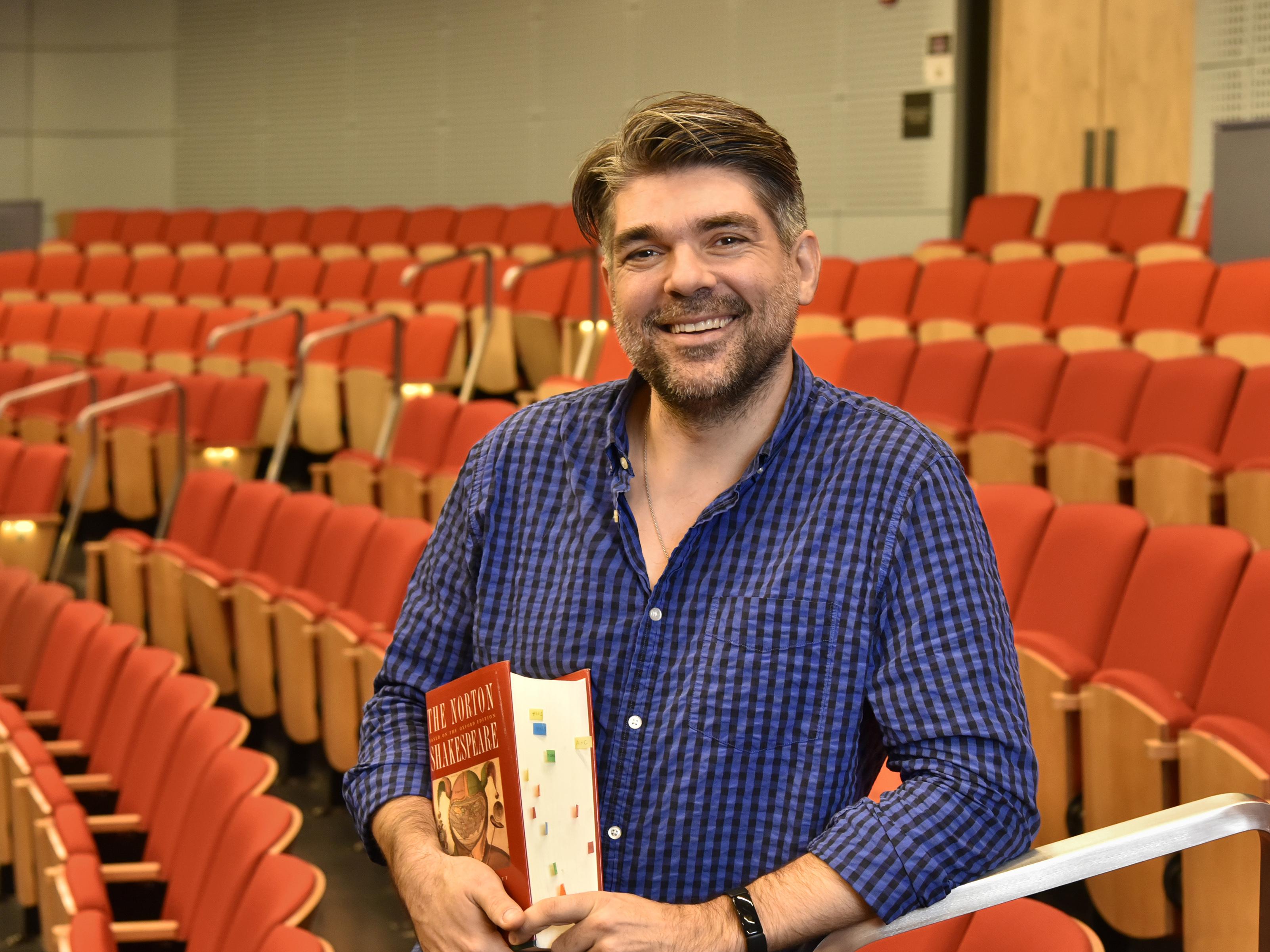Theatre faculty member Toby Malone has co-authored a new book for those bringing plays to stages anywhere, titled "Cutting Plays."
SUNY Oswego theatre faculty member Toby Malone has co-authored a book on adapting pieces to the stage, available since Dec. 10.
Malone and his co-author Aili Huber began writing “Cutting Plays for Performance: A Practical and Accessible Guide” mid pandemic in fall 2020, an apt time to write because they found that many of the contributors for this book were, like them, not in production.
The book actually came about when Malone and Huber realized they were both passionate about cutting plays -- or adapting them in various ways for the sake of time, audience or story -- after they were both asked to give a workshop at the The Kennedy Center American College Theater Festival. The workshop was titled "The First Thing We Do Let’s Cut All The Lawyers," which Malone said was a reference to a line from Shakesphere’s play "Henry VI: Part 2."
“We went in and showed different approaches to cuts that we’ve made to the same scene, so we said these are strategies that we would use, here is a scene that we’ve both cut from 'Romeo and Juliet' -- one of us cut one way one of us cut another,” Malone said.
They asked people in the workshop to cut a scene themselves and at the end of the workshop they were approached by an attendee who asked if there was a book they could read for more help. When they researched the question, they realized there was none.
'Really good balance'
Malone and Huber wanted to make sure that the book would appeal to someone who had cut before but also people who haven’t. “We feel as though we’ve tried to strike a really good balance in terms of the tone where we have a fairly conversational book but also a fairly rigorous book, and so there are some chapters that get into really deep detail but other chapters that are very broad," he explained.
Malone said they received the offer for publication from Routledge in the middle of the pandemic and were never in the same room together during the writing process -- as Malone splits his time between Oswego and Toronto and Huber is based in Virginia. That meant that the entire book was written in Google Docs as well as a shared drive, and they communicated with text messaging. They split the work down the middle by taking the lead on chapters each felt like they were an expert on.
One chapter of the book is called "Don’t cut that," and Malone explained that as “cuts should be made with consideration about what the purpose of the text is for as opposed to just saying I need it to be two hours, so I’m just going to cut out 40 pages ... then the story doesn’t make sense, there’s story structure, there’s character, things like that are necessary.”
Another chapter discusses the legalities when cutting a play. Malone explained that Shakespeare can be changed however you want because it is part of the public domain, but a play like "Hamilton" can not be changed because that script is protected under copyright.
Malone added that a lot of people change plays they are not supposed to, and all it takes is to get noticed once and you can be sued for it. “We wanted to be really clear that we were aware of the fact that this was something that happened in the industry and we didn’t want people to say you’re offering people tools to break the law,” Malone noted.
"Cutting Plays" also feature input from many others who work in the theater industry, and Malone explained that it was incredible to get a chance to speak to “some real professionals and luminaries in the field.”
Malone also is anticipating the releases of his edited version of "Richard III," a digital case study and a play to be published pertaining to the pandemic.
You can order or learn more about "Cutting Plays" from the Routledge website.
-- Written by Braylon Noble of the Class of 2021




